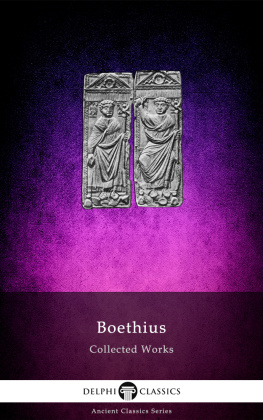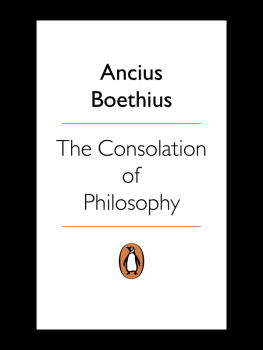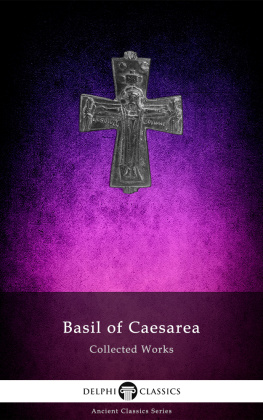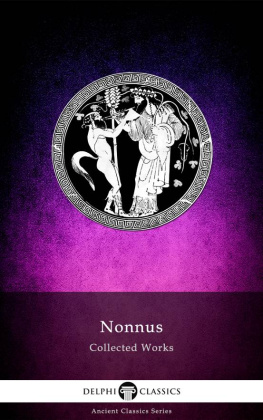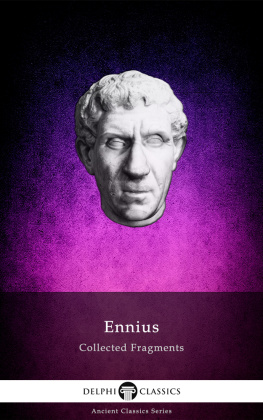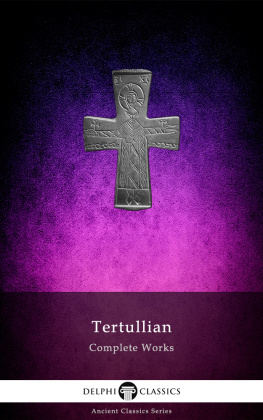The Collected Works of
BOETHIUS
(c. 477-524 AD)

Contents

Delphi Classics 2022
Version 1

Browse Ancient Classics







The Collected Works of
ANICIUS MANLIUS SEVERINUS BOETHIUS

By Delphi Classics, 2022
COPYRIGHT
Collected Works of Boethius

First published in the United Kingdom in 2022 by Delphi Classics.
Delphi Classics, 2022.
All rights reserved. No part of this publication may be reproduced, stored in a retrieval system, or transmitted, in any form or by any means, without the prior permission in writing of the publisher, nor be otherwise circulated in any form other than that in which it is published.
ISBN: 978 1 80170 073 3
Delphi Classics
is an imprint of
Delphi Publishing Ltd
Hastings, East Sussex
United Kingdom
Contact: sales@delphiclassics.com

www.delphiclassics.com
The Translations

Boethius was born in Rome to a patrician family in c. 480. His family, the Anicii, included emperors Petronius Maximus and Olybrius and many consuls.
The Theological Tractates

Translated by H. F. Stewart and E. K. Rand, Loeb Classical Library, 1918
CONTENTS

Boethius imprisoned, from a 1385 manuscript of the Consolation.
NOTE ON THE TEXT

I N PREPARING THE text of the Consolatio I have used the apparatus in Peipers edition (Teubner, 1871), since his reports, as I know in the case of the Tegernseensis, are generally accurate and complete; I have depended also on my own collations or excerpts from various of the important manuscripts, nearly all of which I have at least examined, and I have also followed, not always but usually, the opinions of Engelbrecht in his admirable article, Die Consolatio Philosophiae des Boethius in the Sitzungsberichte of the Vienna Academy, cxliv. (1902) 160. The present text, then, has been constructed from only part of the material with which an editor should reckon, though the reader may at least assume that every reading in the text has, unless otherwise stated, the authority of some manuscript of the ninth or tenth century; in certain orthographical details, evidence from the text of the Opuscula Sacra has been used without special mention of this fact. We look to August Engelbrecht for the first critical edition of the Consolatio at, we hope, no distant date.
The text of the Opuscula Sacra is based on my own collations of all the important manuscripts of these works. An edition with complete apparatus criticus will be ready before long for the Vienna Corpus Scriptorum Ecclesiasticorum Latinorum. The history of the text of the Opuscula Sacra, as I shall attempt to show elsewhere, is intimately connected with that of the Consolatio.
E. K. R.
INTRODUCTION

A NICIUS MANLIUS SEVERINUS BOETHIUS, of the famous Praenestine family of the Anicii, was born about 480 A.D. in Rome. His father was an ex-consul; he himself was consul under Theodoric the Ostrogoth in 510, and his two sons, children of a great granddaughter of the renowned Q. Aurelius Symmachus, were joint consuls in 522. His public career was splendid and honourable, as befitted a man of his race, attainments, and character. But he fell under the displeasure of Theodoric, and was charged with conspiring to deliver Rome from his rule, and with corresponding treasonably to this end with Justin, Emperor of the East. He was thrown into prison at Pavia, where he wrote the Consolation of Philosophy, and he was brutally put to death in 524. His brief and busy life was marked by great literary achievement. His learning was vast, his industry untiring, his object unattainable nothing less than the transmission to his countrymen of all the works of Plato and Aristotle, and the reconciliation of their apparently divergent views. To form the idea was a silent judgment on the learning of his day; to realize it was more than one man could accomplish; but Boethius accomplished much. He translated the of Porphyry, and the whole of Aristotles Organon. He wrote a double commentary on the , and commentaries on the Categories and the De Interpretatione of Aristotle, and on the Topica of Cicero. He also composed original treatises on the categorical and hypothetical syllogism, on Division and on Topical Differences. He adapted the arithmetic of Nicomachus, and his textbook on music, founded on various Greek authorities, was in use at Oxford and Cambridge until modern times. His five theological Tractates are here, together with the Consolation of Philosophy, to speak for themselves.
Boethius was the last of the Roman philosophers, and the first of the scholastic theologians. The present volume serves to prove the truth of both these assertions.
The Consolation of Philosophy is indeed, as Gibbon called it, a golden volume, not unworthy of the leisure of Plato or of Tully. To belittle its originality and sincerity, as is sometimes done, with a view to saving the Christianity of the writer, is to misunderstand his mind and his method. The Consolatio is not, as has been maintained, a mere patchwork of translations from Aristotle and the Neoplatonists. Rather it is the supreme essay of one who throughout his life had found his highest solace in the dry light of reason. His chief source of refreshment, in the dungeon to which his beloved library had not accompanied him, was a memory well stocked with the poetry and thought of former days. The development of the argument is anything but Neoplatonic; it is all his own.
Next page
